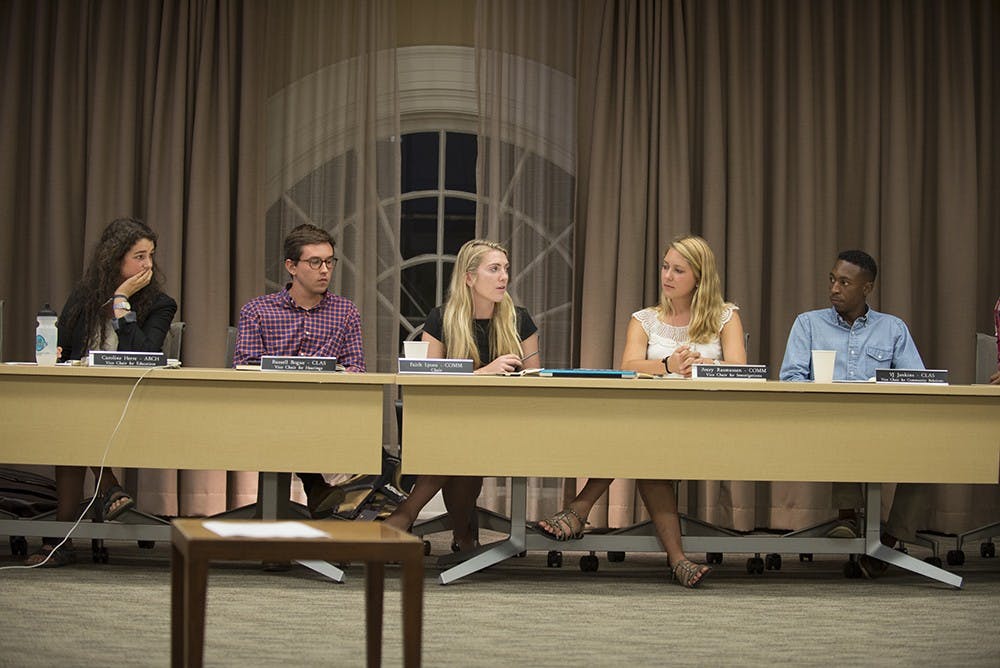Fourth-year Commerce students Heather Hooker and Brendan Kim gave a presentation about the lack of communication between Honor members at the committee’s meeting Monday.
The presentation covered the results of a study done by several Commerce students. The students sent a survey to the Honor Committee and support officers, asking questions about whom they were contacting to answer their questions.
The questions on the survey asked about demographic information, opinions on honor policies, personal attributes and their personal and group networks.
The demographic data showed 54 percent of committee members identified as female and 46 percent identified as male. It also showed 45 percent of members were from Virginia.
The data about individuals’ networks showed only 2.9 percent of committee members and support officers contacted each other for information. It also found the bottom 20 percent of connected individuals were all committee members and support officers.
These low levels of communication may have a negative impact on the relationships formed within the organization, according to the presentation. These negative impacts include a possible “lack of mutual respect, collegiality and informal connection.”
“We noticed that a lot of information was flowing in, but not a lot was flowing back,” Kim said during the presentation. “This was somewhat worrisome because a lot of committee members are making a lot of the decisions for the organization while the support officers do a lot of work on the ground.”
The data also illustrated those who were the most connected were also more likely to identify as “champions” and as “being social.”







